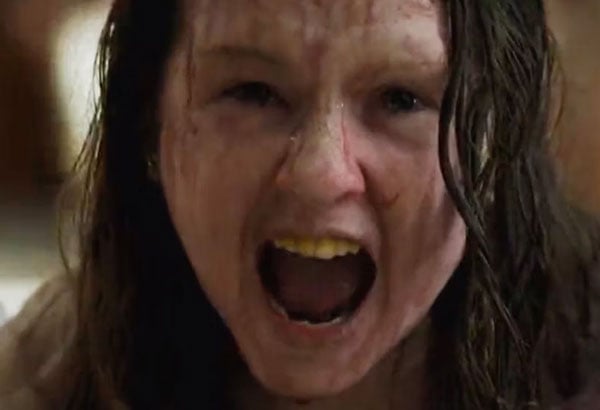From Friedkin to Believer: How The Exorcist Continues to Haunt Modern Cinema
Few films in cinematic history have left as indelible a mark as The Exorcist. William Friedkin's 1973 masterpiece redefined the horror genre and became a timeless classic. Its influence continues to reverberate through modern cinema, culminating in the highly anticipated release of The Exorcist: Believer.
In this article, we journey through the decades, exploring the legacy of The Exorcist and what sets the new instalment apart. From Friedkin's groundbreaking original to Ster-Kinekor's role in bringing the horror to South African audiences, we delve into the evolution of terror and the enduring fascination with demonic possession.
William Friedkin and the Original The Exorcist: Setting the Bar
In 1973, William Friedkin unleashed The Exorcist upon the world. This cinematic tour de force introduced audiences to the chilling tale of a young girl possessed by a malevolent force and the relentless battle to save her soul. Friedkin's visionary direction and the groundbreaking practical effects set a new standard for horror filmmaking. The film's unflinching exploration of faith and the supernatural elevated it beyond mere scares, creating an enduring masterpiece that continues to haunt our collective nightmares.
Sequels, Spin-offs, and the Eternal Fear
In the wake of The Exorcist, the franchise expanded with sequels and spin-offs, each offering a fresh take on the demonic possession narrative. From The Exorcist II: The Heretic to the prequels, The Exorcist universe grew, exploring different facets of the supernatural and human struggles. While some entries faced mixed critical reception, the core theme of confronting the unknown and battling inner demons remained a constant, captivating audiences worldwide.
Unpacking The Exorcist: Believer Movie:
Introduction to the New Horror
Enter The Exorcist: Believer. This latest instalment takes a unique approach, introducing the concept of an exorcist who is also a believer, blurring the lines between faith and fear. It promises to delve deeper into the psychological aspects of possession and belief, setting it apart from its predecessors.
Real or Reel?
The Exorcist: Believer is a work of fiction and is not based on a true story. It falls within the horror genre, known for its ability to create suspense and fear through supernatural elements and imaginative storytelling. While the original 1973 movie, The Exorcist, was marketed as being "based on a true story" as a marketing tactic, it too was a work of fiction inspired by the 1971 novel of the same name by William Peter Blatty.
In the case of The Exorcist: Believer, like its predecessors in the franchise, it draws its inspiration from various supernatural and horror themes but is not rooted in real-world events or occurrences. The question of whether it is based on a true story is part of the franchise's tradition of blurring the lines between reality and fiction to enhance the overall chilling experience for the audience.
So, for all of you horror fundis out there looking for a real world connecting here, unfortunately (or perhaps fortunately) nothing has been proven and thus confirmed. But we won’t stop you from being a believer yourself.
The Enduring Legacy of The Exorcist
What is it about The Exorcist that has allowed it to stand the test of time and remain a benchmark in the realm of horror? Part of its enduring legacy lies in its ability to tap into the primal fears that reside deep within us all. It doesn't merely rely on cheap jump scares or gratuitous violence; instead, it delves into the very essence of fear itself, exploring the vulnerability of innocence, the fragility of faith, and the stark reality of evil. It forces us to confront our deepest anxieties, making us question what we believe to be true and challenging our understanding of the boundaries between the natural and the supernatural.
Characterisation
The characters of The Exorcist are as unforgettable as they are haunting. Linda Blair's portrayal of the possessed Regan remains one of the most iconic performances in horror history, while Max von Sydow's portrayal of Father Merrin exudes a sense of world-weary wisdom and gravitas that is unparalleled. The film's exploration of the personal struggles of its characters, from Father Karras's crisis of faith to the haunting presence of Regan's mother, Chris, adds layers of emotional depth to the story, making it more than just a mere horror film—it becomes a meditation on the human condition.
The Phenomenon
Beyond the film itself, The Exorcist sparked a cultural phenomenon. It led to a surge of interest in the supernatural and the occult, with many seeking to understand the mysteries of possession and exorcism. The film's impact extended to the realm of religion, prompting discussions about the existence of evil and the power of faith. Even the concept of horror filmmaking itself was forever altered, with The Exorcist setting a new standard for what could be achieved within the genre.
As The Exorcist: Believer prepares to take its place in the pantheon of the franchise, we are reminded that the legacy of The Exorcist is not confined to the boundaries of the screen alone. It is a legacy that has left an indelible mark on the landscape of cinema, culture, and the human psyche. It challenges us to confront our deepest fears and beliefs, reminding us that the unknown still holds mysteries that elude our comprehension.
Simply, though, it is a legacy that continues to beckon us into the darkness, daring us to confront the terrors that lurk in the shadows and to grapple with the timeless questions of faith, fear, and the enduring battle between good and evil.
For the South African Audience: Where Can I Watch The Exorcist: Believer?
South African horror enthusiasts eager to experience the terror of The Exorcist: Believer need look no further than Ster-Kinekor.
The movie releases on the 6th of October.

